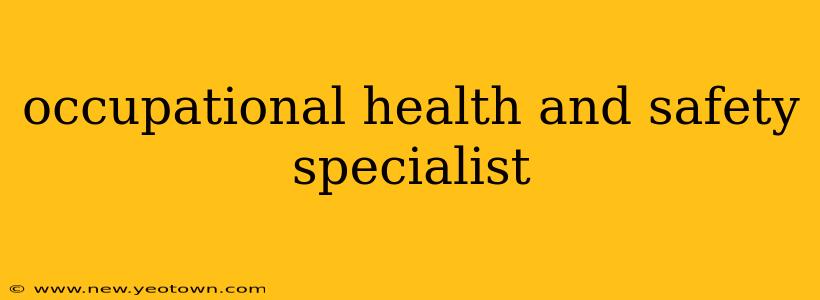A Day in the Life: An Occupational Health and Safety Specialist's Journey
The fluorescent lights hummed a gentle tune above me as I sipped my coffee, the aroma a stark contrast to the day ahead. Today, like most days, is a whirlwind of inspections, consultations, and problem-solving – all in the name of keeping people safe at work. I'm Sarah, an Occupational Health and Safety (OHS) Specialist, and my job is far from ordinary. It's a constant dance between preventing accidents and mitigating risks, ensuring a healthy and productive work environment for everyone.
My journey started with a deep-seated passion for helping others. The idea of proactively preventing workplace injuries and illnesses captivated me. I pursued a degree in occupational health and safety, followed by several years of honing my skills in various sectors, from construction to manufacturing. Each experience provided invaluable insights into the unique hazards present in different industries.
What does an Occupational Health and Safety Specialist do?
This is a question I get asked frequently. The answer isn't simple; it's a diverse role requiring a multifaceted skillset. My day rarely follows a rigid schedule. Some days are spent conducting thorough workplace inspections, identifying potential hazards like faulty machinery, inadequate lighting, or unsafe working practices. Other days involve training employees on safety protocols, developing emergency response plans, and investigating accidents to determine root causes and prevent recurrences.
I act as a consultant, advisor, and even a mediator, working closely with management and employees to bridge communication gaps and foster a strong safety culture. This often involves collaborating with other specialists, such as ergonomists, industrial hygienists, and engineers, to tackle complex safety challenges.
What are the key responsibilities of an OHS specialist?
This is a critical aspect of my role. My responsibilities encompass a wide range of activities, including:
- Risk Assessment and Management: Identifying, evaluating, and controlling workplace hazards. This is the cornerstone of OHS, forming the basis for all preventative measures.
- Accident and Incident Investigation: Thoroughly investigating workplace accidents and near misses to uncover the root cause, implement corrective actions, and prevent future occurrences. Data analysis plays a crucial role here, allowing for trend identification and proactive adjustments.
- Safety Training and Education: Developing and delivering training programs to employees on various safety topics, ensuring everyone is well-equipped to work safely. This also includes promoting a safety-conscious culture within the workplace.
- Compliance with Regulations: Ensuring the workplace adheres to all relevant occupational health and safety regulations and legislation. Staying updated on legal changes is paramount.
- Developing and Implementing Safety Programs: Creating and implementing comprehensive safety programs that align with the organization's goals and industry best practices. This might involve emergency preparedness plans, hazard communication systems, and ergonomic assessments.
What qualifications do I need to become an Occupational Health and Safety Specialist?
A common question from aspiring professionals. The educational path typically involves a degree or diploma in occupational health and safety, environmental health, or a related field. Continuing education and professional certifications, such as those offered by organizations like the Board of Certified Safety Professionals (BCSP), are essential for career advancement and demonstrating expertise.
What is the salary of an Occupational Health and Safety Specialist?
Salary expectations vary significantly depending on factors such as experience, location, industry, and educational qualifications. Generally, experienced professionals command higher salaries, reflecting the value and expertise they bring to an organization.
What are the career prospects for an Occupational Health and Safety Specialist?
The demand for skilled OHS professionals is consistently high across various industries. As awareness of workplace safety and well-being continues to grow, the need for qualified specialists will only increase, leading to excellent career growth opportunities.
The hum of the fluorescent lights fades into the background as I wrap up my day. The feeling of accomplishment is palpable, knowing I've played a part in ensuring a safer work environment for countless individuals. It's a demanding yet incredibly rewarding profession – one where the impact of your work is tangible and directly contributes to improving lives. And that, for me, is the ultimate reward.

